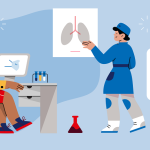
Learning a new language- Where to begin?
Learning a new language can be an exciting and rewarding experience, offering opportunities for personal growth, cultural understanding, and even career advancement. However, the prospect of starting this journey can feel overwhelming.
Before diving into language learning, it’s to define your objectives. Are you learning for travel, work, or personal interest? Setting clear goals will help you stay motivated and choose the most appropriate learning methods.
Choose your language
If you still need to decide on a specific language, consider your interests, career goals, and potential travel plans. Some languages may be more challenging than others, depending on your native tongue, so research the difficulty level before committing.
Familiarize yourself with the alphabet and sounds
Start by learning the alphabet and basic sounds of your chosen language. This foundation will make it easier to pronounce words correctly and understand native speakers. Many language learning apps and websites offer audio pronunciation guides to help you master these fundamentals.

Build a basic vocabulary
Focus on acquiring essential words and phrases that you’ll use frequently. Start with greetings, numbers, days of the week, and everyday objects. Physical or digital flashcards can be an effective tool for memorizing new vocabulary.
Learn basic grammar rules
While you can wait to become a grammar expert, understanding basic sentence structures will help you form simple phrases and express yourself more clearly. Look for beginner-friendly grammar guides or courses that explain fundamental concepts in an accessible way.
Practice speaking regularly
Be bold and start speaking from day one. Even if you only know a few words, practising out loud will help you improve your pronunciation and build confidence. Find a language exchange partner, join a conversation group, or use language exchange apps to practice with native speakers.
Develop a consistent study routine.
Consistency is vital in language learning. Set aside time each day, even if it’s just 15-30 minutes, to practice your new language. Regular, shorter study sessions are often more effective than longer, infrequent ones.
Track your progress
Keep a record of your language learning journey. Note new words you’ve learned, grammar concepts you’ve mastered, and milestones you’ve achieved. Language and culture are deeply intertwined. Learn about your target language target language’s history, customs, and traditions. This cultural knowledge will enhance your understanding and appreciation of the language
Consider formal classes or tutoring
While self-study can be practical, formal classes or one-on-one tutoring can provide structure and expert guidance. Look for local language schools, community college courses, or online tutoring options to supplement your independent learning.
Stay motivated
Learning a language is a long-term commitment that requires persistence. Celebrate small victories, set achievable milestones, and remind yourself of your initial motivation. Consider rewarding yourself for reaching specific goals to maintain enthusiasm.
Incorporate the language into your daily life
Look for opportunities to use your new language skills in everyday situations. For example, label items in your home with their foreign names, change your phone’s language settings or keep a journal in your target language.
Expand your learning methods
As you progress, diversify your learning techniques. Try different apps, books, or teaching methods to keep your studies fresh and engaging. What works best may change as your proficiency improves.
Once you’ve established a solid foundation in your new language, seek more advanced resources and techniques. Attend language conferences, participate in immersion programs, or Get More Informationon specialized vocabulary related to your interests or profession.


















